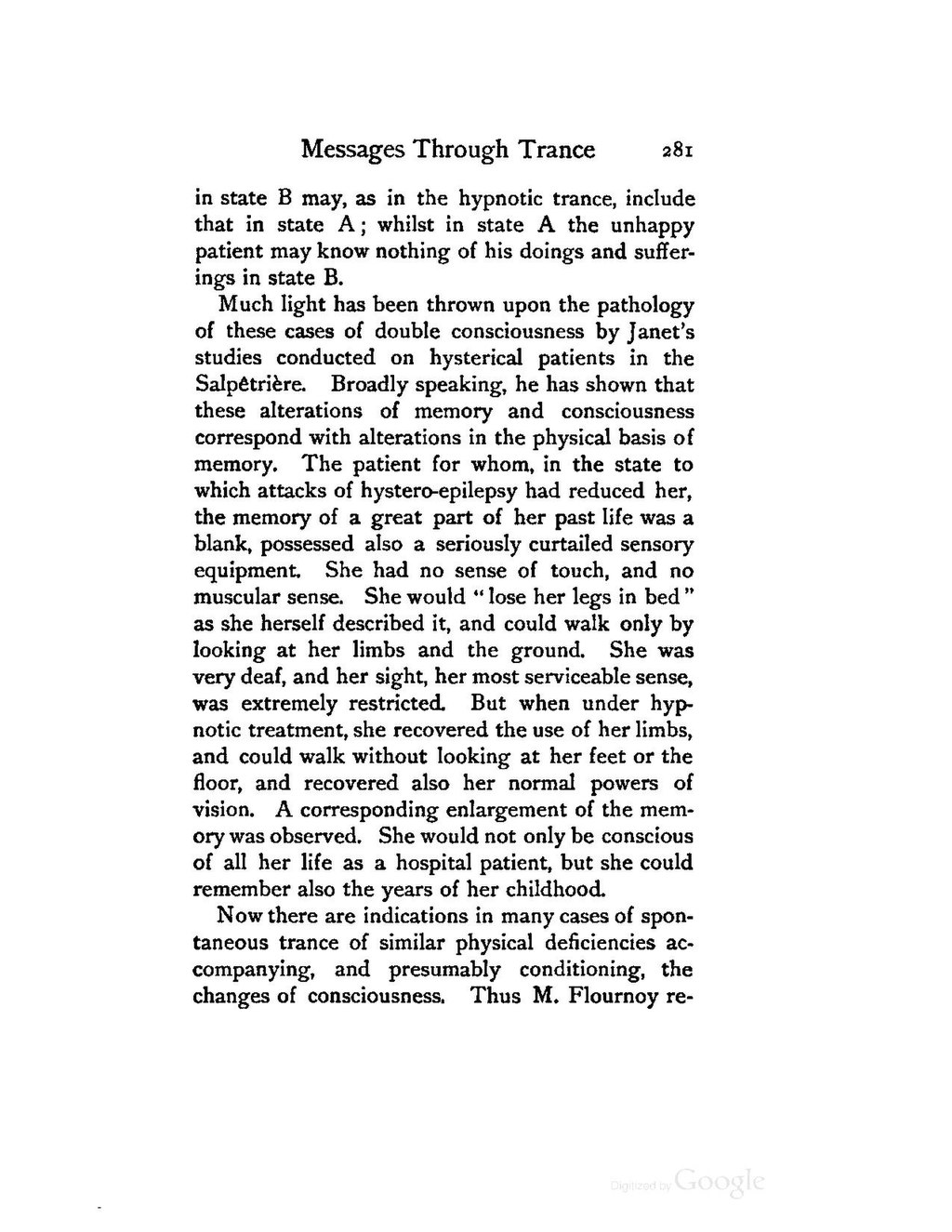in state B may, as in the hypnotic trance, include that in state A; whilst in state A the unhappy patient may know nothing of his doings and sufferings in state B.
Much light has been thrown upon the pathology of these cases of double consciousness by Janet's studies conducted on hysterical patients in the Salpetriere. Broadly speaking, he has shown that these alterations of memory and consciousness correspond with alterations in the physical basis of memory. The patient for whom, in the state to which attacks of hystero—epilepsy had reduced her, the memory of a great part of her past life was a blank, possessed also a seriously curtailed sensory equipment. She had no sense of touch, and no muscular sense. She would "lose her legs in bed " as she herself described it, and could walk only by looking at her limbs and the ground. She was very deaf, and her sight, her most serviceable sense, was extremely restricted. But when under hypnotic treatment, she recovered the use of her limbs, and could walk without looking at her feet or the floor, and recovered also her normal powers of vision. A corresponding enlargement of the memory was observed. She would not only be conscious of all her life as a hospital patient, but she could remember also the years of her childhood.
Now there are indications in many cases of spontaneous trance of similar physical deficiencies accompanying, and presumably conditioning, the changes of consciousness. Thus M. Flournoy re-

